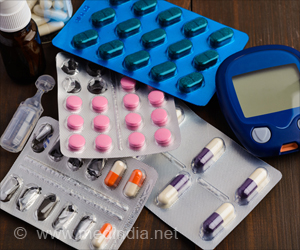Hot flashes and night sweats in perimenopausal women can be decreased with oral micronized progesterone (OMP). About 8 of 10 perimenopausal women are affected with hot flashes and night sweats.

"Almost a quarter of all women today are in perimenopause. They are often working as well as maintaining a home and caring for children and elders. About 20 percent of them will need effective treatment for hot flashes and night sweats to continue to be productive," said lead author Jerilynn C. Prior, M.D., a professor in the Department of Medicine of the Division of Endocrinology and Metabolism at the University of British Columbia, in Vancouver, Canada.
"Hot flashes and night sweats occur in eight of 10 perimenopausal women (who’ve had a period in the last year)," Prior said.
"At present, there is no effective therapy for them. Although not scientifically proven to be effective, women are often prescribed the birth control pill for hot flash symptoms, which may not be safe because women’s risks for blood clots and strokes increase with age and weight gain."
The researchers studied OMP taken every night at bedtime to treat perimenopausal vasomotor symptoms (VMS), for three reasons, Prior said: Progesterone is effective for menopausal hot flashes and night sweats; progesterone levels are lower than normal in perimenopause; and progesterone increases deep sleep and doesn’t cause blood clots.
Prior and her colleagues randomized 189 women throughout Canada: Over three months, 93 received OMP 300 mg at bedtime and 96 received placebo.
Advertisement
Self-reported perceived decreases in daytime and nighttime VMS intensity and in night sweats were significantly greater among the women taking OMP than among those on placebo.
Advertisement
Although that decrease was not statistically different from placebo, the women taking progesterone experienced a clinically important difference: they perceived that their hot flashes were significantly less intense and that their night sweats were significantly improved, compared with placebo.
Overall, 93 percent of the women completed the study, and the women were very likely to take their study medication (91.4 percent of those on progesterone and 84.4 percent of those on placebo). No increased serious or drug-related side effects were reported.
The Canadian Institutes for Health Research funded the study.
Source-Newswise














